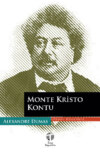Kitabı oku: «The Regent's Daughter», sayfa 15
CHAPTER XXX.
THE FAMILY FEUD
When Gaston returned to his room, he was obliged to answer the questions of Dumesnil and Pompadour, who were waiting to hear news from him; but, in compliance with his promise made to D'Argenson, he did not mention his sentence, but simply announced a severer interrogatory than before – but as he wished to write some letters, he asked Dumesnil for a light. Dumesnil sent him a candle – things were progressing, it may be remarked; Maison-Rouge could refuse nothing to Mademoiselle de Launay, and she shared all with Dumesnil, who, in his turn, again shared with his neighbors, Gaston and Richelieu.
Gaston doubted whether, in spite of D'Argenson's promise, he would be allowed to see Helene, but he knew that at least he should see a priest before he died; there could be no doubt that the priest would forward two letters for him.
As he began to write, Mademoiselle de Launay made a signal that she had something to send him; it was a letter. Gaston read:
"Our friend – for you are our friend, and now we have no secrets from you – tell Dumesnil of the famous hope I conceived after the word that Herment said to me."
Gaston's heart beat. Might not he also find in this letter some ground for hope? Had they not said that his fate could not be separated from the others? It is true that those who had said so did not know of his conspiracy. He read on:
"An hour ago the doctor came, accompanied by Maison-Rouge; from the latter's manner I drew the most favorable augury; however, when I asked to speak in private, or, at least, to whisper to the doctor, he made some difficulties, which I removed with a smile. 'At least,' said he, 'no one must know that I am out of hearing. I should lose my place if it were known how weak I am.' This tone of love and interest combined seemed to me so grotesque that I laughingly promised him what he asked; you see how I keep my promise. He went to a distance, and Herment approached. Then commenced a dialogue, wherein the gestures meant one thing while the voice declared another. 'You have good friends,' said Herment; 'friends in good places, who are greatly interested for you.' I naturally thought of Madame de Maine. 'Ah, monsieur,' I cried, 'have you anything for me?' 'Hush,' said Herment. Judge how my heart beat."
Gaston felt his own beating vigorously.
"'And what have you to give me?' 'Oh, nothing myself: but you will have the object agreed upon.' 'But what is the object? Speak!' 'The beds in the Bastille are known to be bad, and particularly badly covered, and I am commissioned to offer you – ' 'What?' 'A coverlet.' I burst out laughing; the devotion of my friends was shown in preventing my catching cold. 'My dear Monsieur Herment,' said I, 'in my present position it would be better if my friends were to occupy themselves less about my feet and more about my head.' 'It is a female friend,' said he. 'Who is it?' 'Mademoiselle de Charolais,' said Herment, lowering his voice, so that I could scarcely hear him. Then he withdrew. I, my dear chevalier, am now waiting for Mademoiselle de Charolais's coverlet. Tell this to Dumesnil; it will make him laugh."
Gaston sighed. The gayety of those around him weighed heavily on his heart. It was a new torture which they had invented, in forbidding him to confide his fate to any one; it seemed to him that he should have found consolation in the tears of his two neighbors. He had not the courage to read the letter to Dumesnil, so he passed it on to him, and a moment after heard shouts of laughter.
At this moment Gaston was saying adieu to Helene.
After passing a part of the night in writing, he slept; at five-and-twenty one must sleep, even if it be just before death.
In the morning Gaston's breakfast was brought at the usual hour, but he remarked that it was more recherché than usual; he smiled at this attention, and as he was finishing, the governor entered.
Gaston with a rapid glance interrogated his expression, which was calm and courteous as ever. Was he also ignorant of the sentence, or was he wearing a mask?
"Monsieur," said he, "will you take the trouble to descend to the council-chamber?"
Gaston rose. He seemed to hear a buzzing in his ears, for to a man condemned to death every injunction which he does not understand is a torture.
"May I know the reason, monsieur?" asked Gaston, in so calm a tone that it was impossible to detect his real emotion.
"To receive a visit," replied the governor. "Yesterday, after the interrogatory, did you not ask the lieutenant of police to be allowed to see some one?"
Gaston started.
"And is it that person?" asked he.
"Yes, monsieur."
Gaston had asked for two persons; the governor only announced one; which one was it? He had not the courage to ask, and silently followed the governor.
De Launay led Gaston to the council-chamber; on entering, he cast an eager glance around, but the room was empty.
"Remain here, monsieur; the person whom you expect is coming," said the governor, who bowed and went out.
Gaston ran to the window, which was barred, and looked out – there was a sentinel before it.
The door opened, and Gaston, turning round, faced the Duc d'Olivares.
"Ah, monsieur," cried he, "how good of you to come at the request of a poor prisoner."
"It was a duty," replied the duke, "besides, I had to thank you."
"Me!" said Gaston, astonished; "what have I done to merit your excellency's thanks?"
"You have been interrogated, taken to the torture-chamber, given to understand that you might save yourself by naming your accomplices, and yet you kept silence."
"I made an engagement and kept it: that does not deserve any thanks, monseigneur."
"And now, monsieur, tell me if I can serve you in anything."
"First, tell me about yourself; have you been molested, monseigneur?"
"Not at all: and if all the Bretons are as discreet as you, I doubt not that my name will never be mentioned in these unfortunate debates."
"Oh, I will answer for them as for myself, monseigneur; but can you answer for La Jonquiere?"
"La Jonquiere!" repeated the duke.
"Yes. Do you not know that he is arrested?"
"Yes; I heard something of it."
"Well, I ask you, monseigneur, what you think of him?"
"I can tell you nothing, except that he has my confidence."
"If so, he must be worthy of it, monseigneur. That is all I wished to know."
"Then come to the request you had to make."
"Have you seen the young girl I brought to your house?"
"Mademoiselle Helene de Chaverny? Yes."
"Well, monsieur, I had not time to tell you then, but I tell you now, that I have loved her for a year. The dream of that year has been to consecrate my life to her happiness. I say the dream, monseigneur; for, on awaking, I saw that all hope of happiness was denied me; and yet, to give this young girl a name, a position, a fortune, at the moment of my arrest, she was about to become my wife."
"Without the knowledge of her parents or the consent of her family?" cried the duke.
"She had neither, monseigneur; and was probably about to be sold to some nobleman when she left the person who had been set to watch her."
"But who informed you that Mademoiselle Helene de Chaverny was to be the victim of a shameful bargain?"
"What she herself told me of a pretended father, who concealed himself; of diamonds which had been offered to her. Then, do you know where I found her, monseigneur? In one of those houses destined to the pleasures of our roués. She! an angel of innocence and purity. In short, monseigneur, this young girl fled with me, in spite of the cries of her duenna, in broad daylight, and in the face of the servants who surrounded her. She stayed two hours alone with me; and, though she is as pure as on the day when she received her mother's first kiss, she is not the less compromised. I wish this projected marriage to take place."
"In your situation, monsieur?"
"A still greater reason."
"But perhaps you may deceive yourself as to the punishment reserved for you!"
"It is probably the same which, under similar circumstances, was inflicted on the Count de Chalais, the Marquis de Cinq-Mars, and the Chevalier Louis de Rohan."
"Then you are prepared even for death, monsieur?"
"I prepared for it from the day I joined the conspiracy: the conspirator's only excuse is, that, while robbing others of their lives, he risks his own."
"And what will this young girl gain by the marriage?"
"Monseigneur, though not rich, I have some fortune; she is poor; I have a name, and she has none. I would leave her my name and fortune; and with that intention I have already petitioned the king that my goods may not be confiscated, nor my name declared infamous. Were it known for what reason I ask this, it would doubtless be granted; if I die without making her my wife, she will be supposed to be my mistress, and will be dishonored, lost, and there will be no future for her. If, on the contrary, by your protection, or that of your friends (and that protection I earnestly implore), we are united, no one can reproach her – the blood which flows for a political offense does not disgrace a family – no shame will fall on my widow; and if she cannot be happy, she will at least be independent and respected. This is the favor which I have to ask, monseigneur; is it in your power to obtain it for me?"
The duke went to the door and struck three blows: Maison-Rouge appeared.
"Ask M. de Launay, from me," said the duke, "whether the young girl who is at the door in my carriage may come in? Her visit, as he knows, is authorized. You will have the kindness to conduct her here."
"What! monseigneur; Helene is here – at the door?"
"Were you not promised that she should come?"
"Yes; but seeing you alone, I lost all hope."
"I wished to see you first, thinking that you might have many things to say which you would not wish her to hear; for I know all."
"You know all! What do you mean?"
"I know that you were taken to the arsenal yesterday!"
"Monseigneur!"
"I know that you found D'Argenson there, and that he read your sentence."
"Mon Dieu!"
"I know that you are condemned to death, and that you were bound not to speak of it to any one."
"Oh, monseigneur, silence! One word of this would kill Helene."
"Be easy, monsieur; but let us see; is there no way of avoiding this execution?"
"Days would be necessary to prepare and execute a plan of escape, and I scarcely have hours."
"I do not speak of escape; I ask if you have no excuse to give for your crime?"
"My crime!" cried Gaston, astonished to hear his accomplice use such a word.
"Yes," replied the duke: "you know that men stigmatize murder with this name under all circumstances; but posterity often judges differently, and sometimes calls it a grand deed."
"I have no excuse to give, monseigneur, except that I believe the death of the regent to be necessary to the salvation of France."
"Yes," replied the duke, smiling; "but you will see that that is scarcely the excuse to offer to Philippe d'Orleans. I wanted something personal. Political enemy of the regent's as I am, I know that he is not considered a bad man. Men say that he is merciful, and that there have been no executions during his reign."
"You forget Count Horn."
"He was an assassin."
"And what am I?"
"There is this difference: Count Horn murdered in order to rob."
"I neither can nor will ask anything of the regent," said Gaston.
"Not you, personally, I know; but your friends. If they had a plausible pretense to offer, perhaps the prince himself might pardon you."
"I have none, monseigneur."
"It is impossible, monsieur – permit me to say so. A resolution such as you have taken must proceed from a sentiment of some kind – either of hatred or vengeance. And stay; I remember you told La Jonquiere, who repeated it to me, that there was a family feud: tell me the cause."
"It is useless, monseigneur, to tire you with that; it would not interest you."
"Never mind, tell it me."
"Well, the regent killed my brother."
"The regent killed your brother! how so? it is – impossible, Monsieur de Gaston," said the Duc d'Olivares.
"Yes, killed; if from the effect we go to the cause."
"Explain yourself; how could the regent do this?"
"My brother, who, being fifteen years of age when my father died, three months before my birth, stood to me in the place of that father, and of mother, who died when I was still in the cradle – my brother loved a young girl who was brought up in a convent by the orders of the prince."
"Do you know in what convent?"
"No: I only know that it was at Paris."
The duke murmured some words which Gaston could not hear.
"My brother, a relation of the abbess, had seen this young girl and asked her hand in marriage. The prince's consent to this union had been asked, and he made a pretense of granting it, when this young girl, seduced by her so-called protector, suddenly disappeared. For three months my brother hoped to find her, but all his searches were vain; he found no trace of her, and in despair he sought death in the battle of Ramillies."
"And what was the name of this girl!"
"No one ever knew, monseigneur; to speak her name was to dishonor it."
"It was doubtless she," murmured the duke, "it was Helene's mother; and your brother was called – ?" added he aloud.
"Olivier de Chanlay, monseigneur."
"Olivier de Chanlay!" repeated the duke, in a low voice. "I knew the name of De Chanlay was not strange to me." Then, aloud, "Continue, monsieur; I listen to you."
"You do not know what a family hatred is in a province like ours. I had lavished upon my brother all the love which would have fallen to the share of my father and mother, and now I suddenly found myself alone in the world. I grew up in isolation of heart, and in the hope of revenge; I grew up among people who were constantly repeating, 'It was the Duc d'Orleans who killed your brother.' Then the duke became regent, the Breton league was therefore organized. I was one of the first to join it. You know the rest. You see that there is nothing in all this which has any interest for your excellency."
"You mistake, monsieur; unfortunately, the regent has to reproach himself with many such faults."
"You see, therefore," said Gaston, "that my destiny must be accomplished, and that I can ask nothing of this man."
"You are right, monsieur; whatever is done must be done without you."
At this moment the door opened and Maison-Rouge appeared.
"Well, monsieur?" asked the duke.
"The governor has an order from the lieutenant of police to admit Mademoiselle Helene de Chaverny; shall I bring her here?"
"Monseigneur," said Gaston, looking at the duke with an air of entreaty.
"Yes, monsieur," said he, "I understand – grief and love do not need witnesses – I will come back to fetch Mademoiselle Helene."
"The permission is for half an hour," said Maison-Rouge.
"Then at the end of that time I will return," said the duke, and bowing to Gaston, he went out.
An instant after the door opened again, and Helene appeared, trembling, and questioning Maison-Rouge, but he retired without replying.
Helene looked round and saw Gaston, and for a few minutes all their sorrows were forgotten in a close and passionate embrace. "And now – " cried Helene, her face bathed in tears.
"Well! and now?" asked Gaston.
"Alas! to see you here – in prison," murmured Helene, with an air of terror, "here, where I dare not speak freely, where we may be watched – overheard."
"Do not complain, Helene, for this is an exception in our favor; a prisoner is never allowed to press one who is dear to him to his heart; the visitor generally stands against that wall, the prisoner against this, a soldier is placed between, and the conversation must be fixed beforehand."
"To whom do we owe this favor?"
"Doubtless to the regent; for yesterday, when I asked permission of Monsieur d'Argenson, he said that it was beyond his power to grant, and that he must refer it to the regent."
"But now that I see you again, Gaston, tell me all that has passed in this age of tears and suffering. Ah! tell me; but my presentiments did not deceive me; you were conspiring – do not deny it – I know it."
"Yes; Helene, you know that we Bretons are constant both in our loves and our hatreds. A league was organized in Bretagne, in which all our nobles took part – could I act differently from my brothers? I ask you, Helene, could I, or ought I to have done so? Would you not have despised me, if, when you had seen all Bretagne under arms, I alone had been inactive – a whip in my hand while others held the sword?"
"Oh! yes; you are right; but why did you not remain in Bretagne with the others?"
"The others are arrested also, Helene."
"Then you have been denounced – betrayed."
"Probably – but sit down, Helene; now that we are alone, let me look at you, and tell you that you are beautiful, that I love you. How have you been in my absence – has the duke – "
"Oh! if you only knew how good he is to me; every evening he comes to see me, and his care and attention – "
"And," said Gaston, who thought of the suggestion of the false La Jonquiere, "nothing suspicious in those attentions?"
"What do you mean, Gaston?"
"That the duke is still young, and that, as I told you just now, you are beautiful."
"Oh, Heaven! no! Gaston; this time there is not a shadow of doubt; and when he was there near me – as near as you are now – there were moments when it seemed as if I had found my father."
"Poor child!"
"Yes, by a strange chance, for which I cannot account, there is a resemblance between the duke's voice and that of the man who came to see me at Rambouillet – it struck me at once."
"You think so?" said Gaston, in an abstracted tone.
"What are you thinking of, Gaston?" asked Helene; "you seem scarcely to hear what I am saying to you."
"Helene, every word you speak goes to the inmost depth of my heart."
"You are uneasy, I understand. To conspire is to stake your life; but be easy, Gaston – I have told the duke that if you die I shall die too."
Gaston started.
"You are an angel," said he.
"Oh, my God!" cried poor Helene, "how horrible to know that the man I love runs a danger – all the more terrible for being uncertain; to feel that I am powerless to aid him, and that I can only shed tears when I would give my life to save him."
Gaston's face lit up with a flush of joy; it was the first time that he had ever heard such words from the lips of his beloved; and under the influence of an idea which had been occupying him for some minutes —
"Yes, dearest," said he, taking her hand, "you can do much for me."
"What can I do?"
"You can become my wife."
Helene started.
"I your wife, Gaston?" cried she.
"Yes, Helene; this plan, formed in our liberty, may be executed in captivity. Helene, my wife before God and man, in this world and the next, for time and for eternity. You can do this for me, Helene, and am I not right in saying that you can do much?"
"Gaston," said she, looking at him fixedly, "you are hiding something from me."
It was Gaston's turn to start now.
"I!" said he, "what should I conceal from you?"
"You told me you saw M. d'Argenson yesterday?"
"Well, what then?"
"Well, Gaston," said Helene, turning pale, "you are condemned."
Gaston took a sudden resolution.
"Yes," said he, "I am condemned to exile; and, egotist as I am, I would bind you to me by indissoluble ties before I leave France."
"Is that the truth, Gaston?"
"Yes; have you the courage to be my wife, Helene? to be exiled with me?"
"Can you ask it, Gaston?" said she, her eyes lighted with enthusiasm, "exile – I thank thee, my God – I, who would have accepted an eternal prison with you, and have thought myself blessed – I may accompany, follow you? Oh, this condemnation is, indeed, a joy after what we feared! Gaston, Gaston, at length we shall be happy."
"Yes, Helene," said Gaston, with an effort.
"Picture my happiness," cried Helene; "to me France is the country where you are; your love is the only country I desire. I know I shall have to teach you to forget Bretagne, your friends, and your dreams of the future; but I will love you, so that it will be easy for you to forget them."
Gaston could do nothing but cover her hands with kisses.
"Is the place of your exile fixed?" said she; "tell me, when do you go? shall we go together?"
"My Helene," replied Gaston, "it is impossible; we must be separated for a time. I shall be taken to the frontier of France – I do not as yet know, which – and set free. Once out of the kingdom, you shall rejoin me."
"Oh, better than that, Gaston – better than that. By means of the duke I will discover the place of your exile, and instead of joining you there, I will be there to meet you. As you step from the carriage which brings you, you shall find me waiting to soften the pain of your adieux to France; and then, death alone is irretrievable; later, the king may pardon you; later still, and the action punished to-day may be looked upon as a deed to be rewarded. Then we will return; then nothing need keep us from Bretagne, the cradle of our love, the paradise of our memories. Oh!" continued she, in an accent of mingled love and impatience, "tell me, Gaston, that you share my hopes, that you are content, that you are happy."
"Yes, Helene, I now am happy, indeed; for now – and only now – I know by what an angel I am beloved. Yes, dearest, one hour of such love as yours, and then death would be better than a whole life with the love of any other."
"Well!" exclaimed Helene, her whole mind and soul earnestly fixed on the new future which was opening before her, "what will they do? Will they let me see you again before your departure? When and how shall we meet next? Shall you receive my letters? Can you reply to them? What hour to-morrow may I come?"
"They have almost promised me that our marriage shall take place this evening or to-morrow morning."
"What! here in a prison," said Helene, shuddering involuntarily.
"Wherever it may be, Helene, it will bind us together for the rest of our lives."
"But suppose they do not keep their promise to you; suppose they make you set out before I have seen you?"
"Alas!" said Gaston, with a bursting heart, "that is possible, Helene, and it is that I dread."
"Oh, mon Dieu! do you think your departure is so near?"
"You know, Helene, that prisoners are not their own masters; they may be removed at any moment."
"Oh, let them come – let them come; the sooner you are free, the sooner we shall be reunited. It is not necessary that I should be your wife, in order to follow and join you. Do I not know my Gaston's honor, and from this day I look upon him as my husband before God. Oh, go proudly, Gaston, for while these thick and gloomy walls surround you I tremble for your life. Go, and in a week we shall be reunited; reunited, with no separation to threaten us, no one to act as a spy on us – reunited forever."
The door opened.
"Great Heaven, already!" said Helene.
"Madame," said the lieutenant, "the time has elapsed."
"Helene," said Gaston, seizing the young girl's hand, with a nervous trembling which he could not master.
"What is it?" cried she, watching him with terror. "Good Heaven! you are as pale as marble."
"It is nothing," said he, forcing himself to be calm; "indeed, it is nothing," and he kissed her hand.
"Till to-morrow, Gaston."
"To-morrow – yes."
The duke appeared at the door; Gaston ran to him.
"Monseigneur," said he, "do all in your power to obtain permission for her to become my wife; but if that be impossible, swear to me that she shall be your daughter."
The duke pressed Gaston's hand; he was so affected that he could not speak.
Helene approached. Gaston was silent, fearing she might overhear.
He held out his hand to Helene, who presented her forehead to him, while silent tears rolled down her cheeks; Gaston closed his eyes, that the sight of her tears might not call up his own.
At length they must part. They exchanged one last lingering glance, and the duke pressed Gaston's hand.
How strange was this sympathy between two men, one of whom had come so far for the sole purpose of killing the other.
The door closed, and Gaston sank down on a seat, utterly broken and exhausted.
In ten minutes the governor entered; he came to conduct Gaston back to his own room.
Gaston followed him silently, and when asked if there was anything he wanted, he mournfully shook his head.
At night Mademoiselle de Launay signaled that she had something to communicate.
Gaston opened the window, and received a letter inclosing another.
The first was for himself.
He read:
"Dear Neighbor – The coverlid was not so contemptible as I supposed; it contained a paper on which was written the word already spoken by Herment – 'Hope!' It also inclosed this letter for M. de Richelieu; send it to Dumesnil, who will pass it to the duke.
"Your servant,"De Launay."
"Alas!" thought Gaston, "they will miss me when I am gone," and he called Dumesnil, to whom he passed the letter.










